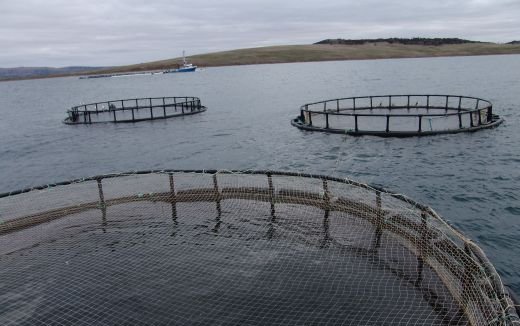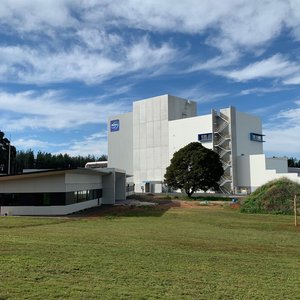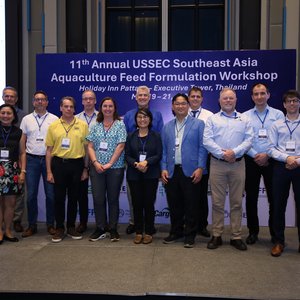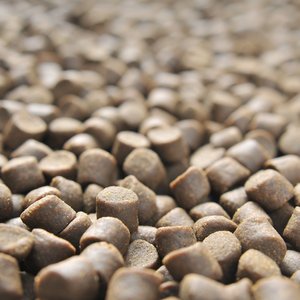The sustainable growth of the world’s fed aquaculture industry could be bolstered by increased use of novel feeds from sources other than wild-caught fish, a new international study led by the University of Tasmania researchers found.
Approximately 16 million of the 29 million tons of forage fish (such as herrings, sardines and anchovies) caught globally each year are currently used for aquafeeds. Wild catch of forage fish has remained stagnant since the 1980s, so for the aquaculture industry to continue to grow, it is essential to consider alternatives to using fishmeal and oil in feeds.
The study found that wider adoption of novel aquafeeds based on microalgae and insect protein and oils could substantially reduce the sector’s demand for wild fish by 2030. Lead author Richard Cottrell, a former Institute for Marine and Antarctic Studies (IMAS) and Centre for Marine Socioecology PhD student, said the study also found that, according to demand scenarios, fed aquaculture production could almost double over the next decade.
“As demand for seafood rises and aquaculture grows, there is a need to source suitable and sustainable feed ingredients. We looked at a range of scenarios to predict future aquaculture production and, depending on consumer preferences, we found a growth of between 37 and 98% is likely. Even limited adoption of novel feeds could help to ensure that this growth is achieved sustainably, which will be increasingly important for food security as the global population continues to rise,” Cottrell said.
The research team analyzed results from 264 scientific studies of farmed fish feeding experiments from around the world and found that novel aquafeed ingredients can substitute fishmeal and oil in the feeds of many species without negative impacts on feed efficiency or omega-3 profiles.
“Previous work has identified that species such as carps and tilapias respond well to complete fishmeal elimination from their feeds, although others such as salmon are still more dependent on fish-based feeds to maintain essential growth and support metabolism. Current innovations targeting reductions in the consumption of fish oil in aquaculture are therefore really promising, and widespread reductions of fish oil from the diets of farmed salmonids, shrimps and marine fish in coming years will allow more judicious use of marine feed resources alongside positive growth in the aquaculture industry,” Cottrell said.
The study also included scientists from the University of California Santa Barbara and the International Atomic Energy Agency.
Check out the study here.











